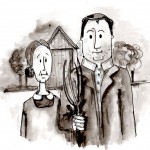
Would you believe that the Irish farmer was not seen as a good catch in the 1950s? There were many bachelor farmers eking out an existence on a farm and of increasing concern to society. De Valera even tried to persuade the government to finance the building of a dower house on every farm so the older couple could move to that and the son could marry and live in the farmhouse.
Are Farmers seen as a good catch now?
I have to admit that I was somewhat surprised when I started researching my first book and found that many women nowadays see farmers as pretty good husband material. Why was I surprised? Well, I guess when you are married to one, you kind of take them for granted plus you’re aware of the long hours and the fluctuating income. However, farmers seem to be viewed as having great husband potential because:
- They are usually hardworking so he shouldn’t end up being a couch potato
- Farmers are out in the elements so will be fit and healthy
- They have a good tan so always look healthy too
- Inheritance is important to them so they’ll be keen on having a family
- Living in the countryside is a lovely way to bring up a family
- There’s plenty of opportunity for romance with all that hay around, not to mention romantic picnics in the field
- Living in a small community means you’ll never be lonely
- Cooking home cooked meals and baking cakes sounds idyllic
- They scrub up well
- They are their own boss
And I’m sure there are lots more reasons too.
Was American Farming seen as a good life in the 1920s?
In the 1920s, over 7000 American women, responding to a questions from a magazine “If you had a daughter of marriageable age, would you, in light of your own experience, have her marry a farmer?” wrote expressing their appreciation of farming as a lifestyle. Many reasons were included in the book The Farmer’s Wife Sampler Quilt.
Their reasons included:
“Farming is the only business which a woman automatically can enter, upon marriage, as her husband’s assistant manager. This gives her an importance beyond that of being merely a wife, and a mother of his children, dependent for a livelihood upon industrial conditions, or upon his ability to please his employer. Without her services the garden, poultry and dairy would bring them little profit. Having these products, living in assured, and beyond this, is the satisfaction of being a real help-meet. The mind of a farmer’s wife is continually broadening by the variety of her interests. Bees, berries, babies; cheese, chicks, canning; grub, garments, garden – do these suggest an empty mind?”
“What other position in life requires as much knowledge and skills as to be a farmer’s wife? Nor is she a drudge because she performs these many tasks; she is a financier, a bookkeeper, and home-maker, a manufacturer, a canner, a trained nurse, a teacher and a livestock breeder. She is a real business woman.”
“The home of the farmer’s wife can have most of the labor-saving devices on the market, good books, the leading magazines, telephone, music, pictures and so forth – all at a nominal cost. Amusements in the counry are more varied than any other place: we have fishing, driving, skating, horseback riding, croquet, tennis, hayrides, corn-roasts, all kinds of picnics, and other good times.”
What about Irish Farming? Was it seen as a good life?
Did Irish women feel the same? Well, yes and no. Obviously some women did marry farmers but the image of the bachelor farmer was a common one in Ireland from the early to mid twentieth century.
In 1911, 25% of Irish women aged 45-57 were unmarried, and in 1936, 44% of women aged 34 were single (Irish Press 5/7/1947) . This was partly as a result of the Great Potato Famine and the change in inheritance habits so only the eldest son inherited the farm, families had become cautious in their realisation that the family farm could only afford to support one family. Sons had to wait until their father died before they could inherit and hence, afford to marry. Therefore, they were often in their fifties before this could happen. Some married women three or four decades their junior, some discovered that all the eligible women in the parish had left for jobs and husbands abroad. It wasn’t necessarily easy for a woman to find a husband either. “Eligible” usually meant having a dowry and in the early twentieth century, Joanna Bourke estimated that out of most families with six daughters, the family would only be able to afford a dowry for two of them. There were other barriers to marriage too as women were expected to marry her equal or better (if a dowry could be afforded). There was no question of a farmer’s daughter marrying a landless labourer for example. Religion was also considered important and mixed marriages were not tolerated. Many of the personal ads of the time stipulated the religion and I’ve noticed this still happens in some personal advertisements today.
Irish Examiner 4 December 1948
Respectable farmer’s son, Protestant, with sixty acres of land, five miles from Cork, wishes to hear from Protestant girl with view to marriage.
Irish Farmers Journal 12 November 1966
Farm Home is a farmer from Wexford in his late thirties who has a 90 acre well-stocked farm and a nice home and car. He would like to get in touch with sincere C of I girl in her twenties who is interested in farming. He is a non smoker. Strictest confidence given and expected.
Irish Farmers Journal 28 August 1976
UP Kerry is a farmer with two farms who would like to hear from girls (farmers’ daughters) with some farming experience. He breeds pedigree Friesian cattle, has own car and lives alone. Would like to meet RC girl with view to marriage. Photo appreciated.
Although unmarried women weren’t viewed as strange (as there were so many) yet because marriage bestowed social status, spinsters were often viewed with pity or scorn. While a man still had hope of getting married into his sixties, very few women got married later in life.
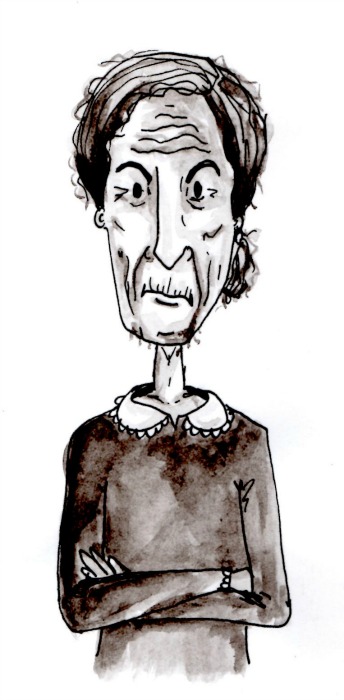 Back to whether the farmer was considered a good marriage partner or not. There were many reasons why marrying a farmer wasn’t viewed as the best move:
Back to whether the farmer was considered a good marriage partner or not. There were many reasons why marrying a farmer wasn’t viewed as the best move:
- His Irish Mammy was not only still alive but relatively young, living in the farmhouse and had no intention of relinquishing her power or her position of woman of the house. Indeed, to get on well with her, many daughters-in-law had to slot into a ‘daughter’ role.
- Working on a farm was hard work, and much of it was seen as women’s work too. Men worked in the fields and their work was finished as the horse got tired or it became dark. Once they sat down in the evening, their work was finished. Women had to manage the cooking, the cleaning, the childcare and the caring for animals – keeping poultry, washing and selling eggs, feeding calves and pigs, milking cows and churning butter. Heading to the bright lights of the cities must have seemed a better option for many.
- Many farming women told their daughters to never marry a farmer, to move away and not follow their life of drudgery.
- The farmhouse was old and did not have modern conveniences. Indeed, the ICA even ran a campaign for piped water in the 1960s claiming that too many women were having to promise “to love, honour and carry water”. Newspaper articles contrasted the modern conveniences of town houses (electricity, hot and cold piped water and elecric ovens) compared to the drudgery of farmhouses (carrying buckets of water, lighting oil lamps and cooking over a pot oven). The ICA even stated that no woman would marry a farmer until there was electricity and piped water in the house. Even at that, it was the 1970s before many farmhouses had bathrooms.
In the 1960s, a woman could be put out of her home, she wasn’t entitled to half the farm (pre-nuptial agreements will be another post!) and her dowry was either given to her husband or her husband’s family. This personal ad shows that some women were determined to hold onto their own assets.
Irish Farmers Journal 12 November 1966
East Clare Lady is a good looking, well-educated lady in Limerick who would like to meet a refined respectable gentleman with good house and means, with view to marriage. Replies especially welcome from Limerick city, East Clare or Co. Limerick. This lady intends keeping her money in her own name. Strictest confidence given and expected.
The marriage bar was still in place until 1972 and this meant that women working in the public service had to give up work on marriage. Even those working in the private sector felt they had to give up work or people were saying “Is he not able to keep you?” Working wives weren’t conducive to keeping your status in society!
While the matchmaker and the dowry still played a part in some areas of the country until the 1960s, more couples were marrying for love rather than road frontage.
Women were often surprised by the expectations of male farmers in the 1960s and 1970s though. A writer to a woman’s magazine in 1967 was “flabbergasted” when a young farmer on a first date asked her age, occupation, pay and cooking ability, whether she dyed her hair, the cause of her mother’s early death, and, significantly, whether she would be able to keep on her job after marriage. Talk about getting the third-degree! Another lady, on a visit to her home place, was asked by a young farmer if her position in Dublin was good enough for her to save for a dowry. (The Irish Times 27 July 2015).
It’s interesting that almost a hundred years after American women were extolling the virtues of a rural life, Irish male farmers are now seen as ‘a good catch’.
It amuses me somewhat that I never thought of researching the lives of farm women when doing my MA in Irish Studies back in 1997. It never occurred to me. I’m finding it really interesting now and am looking forward to doing more primary research by interviewing farm women. There is some historical information in both of my books (primary and secondary research) and I’m looking forward to getting stuck into the next one.
In the meantime, I will be chatting with Ciara Meehan about expectations of marriage in 1960s Ireland in the studio, dlr LexIcon of DunLaoighaire on Saturday, 31 October at 3pm. It’s a free event and if you’d like to see more, the guide is here.






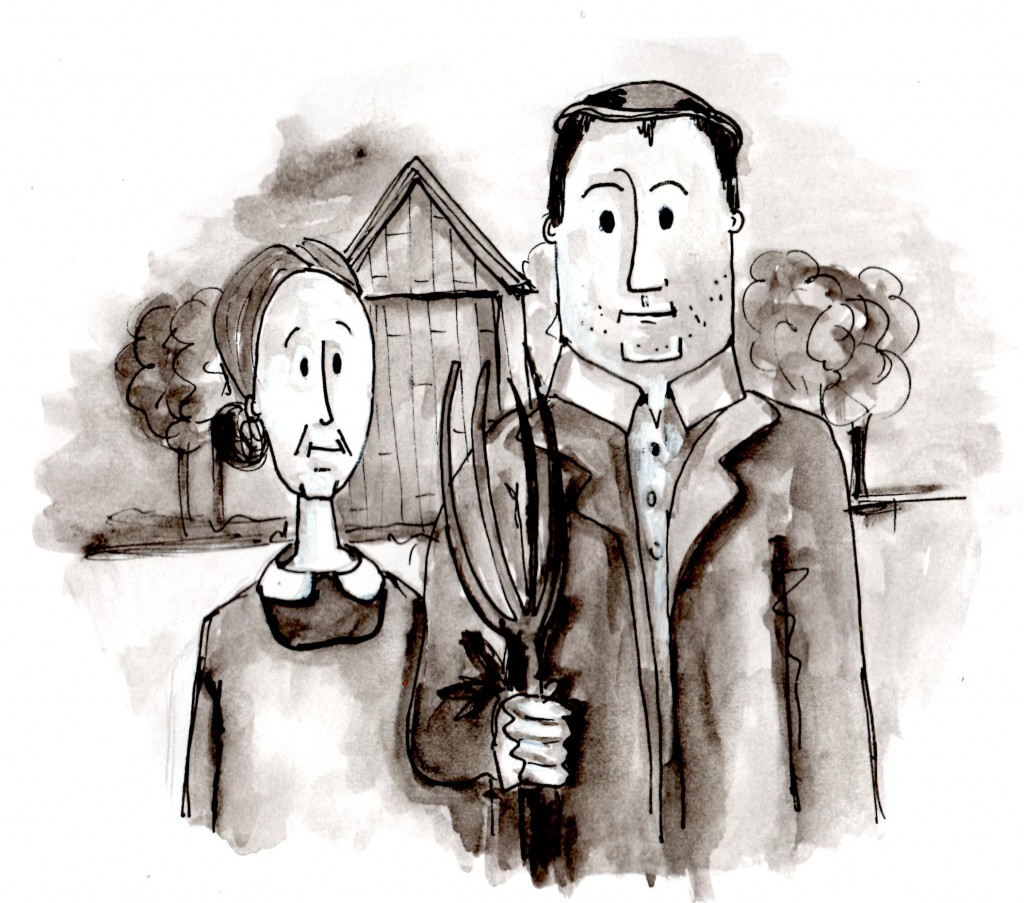
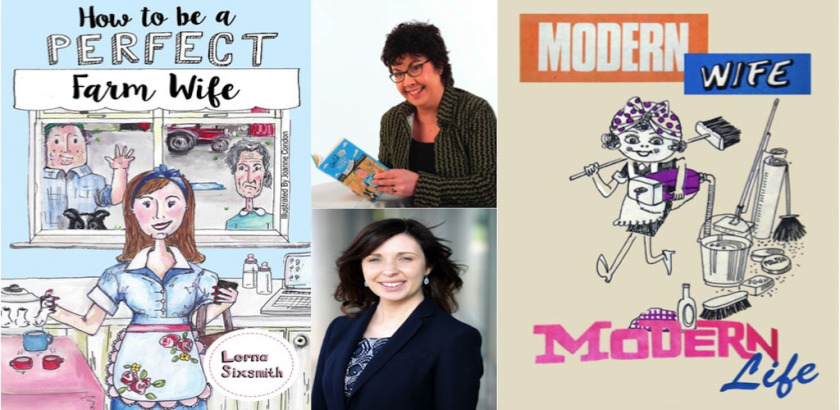
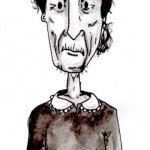

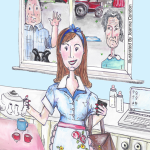

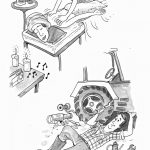
Ryanne
how i got my husband back and got pregnant after 5 years!!!my husband has been patient with me and has been encouraging me that it will be best if we had hopes that we will have a child one day.last year,we had a little fight and he demanded for a divorce and i was so down because without him,i am nothing.he left me and the next day i met him with another woman in a shopping mall.i even tried talking to him but he pretended he didn’t know me.i told my sister about it and she introduced me to the mama jaja ,who helps in so many ways.i contacted her and she sent me a spiritual portion which I use, before i knew it, the next day my husband called and apologized that he was sorry for everything and that i should take him back and that he will cancel the divorce, i had no choice than to accept him,and we have been living happily until i felt sick and went for check up and the doctor confirmed me pregnant. i am so happy and all thanks to mama jaja for all her help. contact her now for any kind of problem and she will sure way to make you happy. Her email is mamajajasorceress@yahoo.com
thanks once again
Michele
A farmer from Tipperary asked me on our first date if I’d be willing to continue to work as a nurse as well as work on the farm as he had a bad back! Needless to say that didnt work out. Prior to marrying my Irish husband (I’m an American), I had never lived in the country. My husband, though not a farmer himself, comes from a farming family. I love living in rural Ireland, it’s a great lifestyle and most of all, a wonderful place to raise kids.
Lorna Post author
Oh, Michele, that made me laugh. I hope he’s still single!
I agree, rural Ireland is wonderful for a family.
Beth Arvin
Reading this reminded me of the time my older sister took an aptitude test at school (mid-sixties) and it came back that she should seek to be a farmer’s wife. She assumed it was because she had an interest in cooking. She never met a farmer, but she did go to culinary school to be a chef, only to discover that women were discriminated against in the culinary field. She did land a job in the top restaurant, but only as a sous chef without hope of advancement. She never did advance beyond that and went back to school to take accounting.
Lorna Post author
Goodness, sign of the times re the aptitude test and the results! I hope your sister was happy with her career in accounts. That’s also a very useful skill in a farmer’s wife – being able to make money stretch 😉
Clare
Fascinating and well-written article, Lorna. I have enjoyed both your books and found the historical bits to be especially interesting. What did you research for your MA thesis?
Lorna Post author
Thank you Clare, yes, I have to admit that the post could have been a lot longer, I love it too!
I really enjoy social history and my favourite era was the 19th century then so I looked at the representation of female sexuality (in literature, media etc and comparing them to what might have been the reality). Maria Luddy had written a book on the topic too. I remember delivering my first ever presentation at a conference and she came to hear me – I was terrified! I’m bragging a bit here now but I’m very very proud of the distinction I got for my MA 🙂
Clare
And so you should be proud! I bet that is fascinating reading, too.
Lorna Post author
Thank you 🙂 Unfortunately, I think it got lost after all our house moves. Or else it is hidden in the attic in some box. I found my BA one years ago. The other copy of MA one will be in Bath still I guess. It’s not that long ago but goodness, the computer I typed it up on was huge, It might be on a floppy disc somewhere 😉
Michael Dellert
Well written and insightful article, thank you!
Out of curiosity, where did you take your MA in Irish Studies. I’d be interested in such a curriculum myself.
Thanks, keep up the good work!
Lorna Post author
Thanks Michael, I’m enjoying the historical research again. I did it in Bath College of Higher Education, now Bath Spa University – a wonderful Irish Studies Department. Back then there were Margaret Ward, Graham Davis, John Newsinger and Brian Griffin publishing really good research.
BUY THE BOOKS NOW
Subscribe to My Blog Posts
Subscribe to My Newsletter
Recent Posts
Archives
Categories